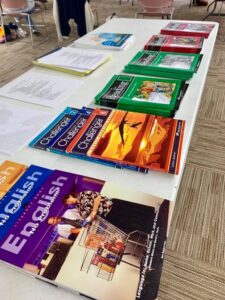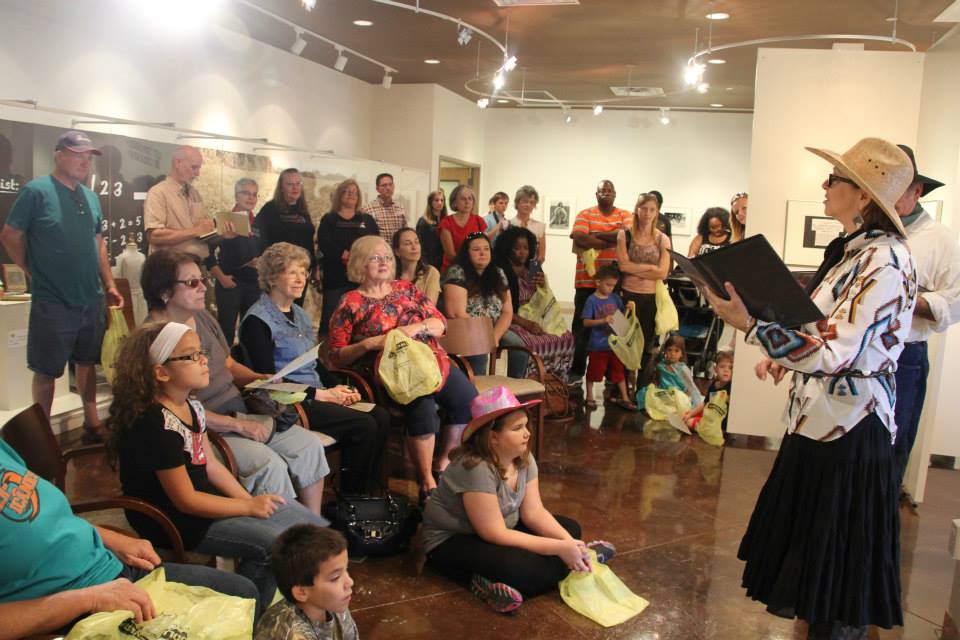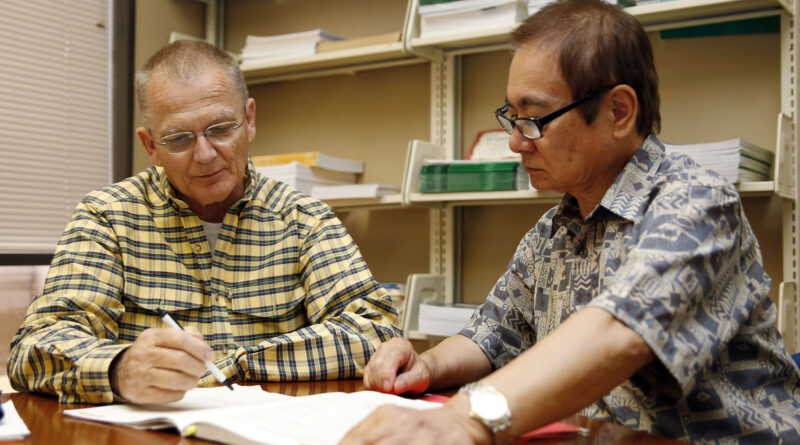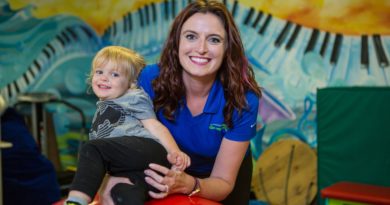Temple Literacy Council volunteers make a difference
By AMY ROGNLIE | Photos courtesy of DON STILES and from Tex Appeal archives
Most of us take our ability to read and write for granted, yet 13% of adults in Bell County are functionally illiterate. Nationwide, 75% of unemployed adults have reading and writing difficulties. Enter Don Stiles and the Temple Literacy Council.
 “I’ve always thought that volunteering is the rent we pay for being alive,” says Stiles, long-time director of the Temple Literacy Council. If that’s true, then Stiles has paid a tremendous amount of rent during his almost 20 years in the driver’s seat at TLC.
“I’ve always thought that volunteering is the rent we pay for being alive,” says Stiles, long-time director of the Temple Literacy Council. If that’s true, then Stiles has paid a tremendous amount of rent during his almost 20 years in the driver’s seat at TLC.
The Temple Literacy Council was formed in 1988 by a group of residents interested in adult literacy. Stiles became interested in the organization when he retired in 2003 from working with the Windham School District, which is located within the prison system in Texas.
He worked there for over 22 years as a teacher, administrator and curriculum consultant. “I’ve always had a keen interest in adult education and both Windham and TLC afforded me the opportunity to work with adults wanting to improve basic reading and writing skills or learn English as a second language,” Stiles says. “Of course, there are striking differences in the two programs, but in both instances, I was working with adults and enjoyed trying to help them.”
TLC recruits volunteer literacy tutors to work with adult learners, and Stiles estimates that the program has helped at least 500 students over the past 20 years. Volunteer tutors are trained in the Laubach Literacy method, a tested and proven system of teaching phonetic reading.
TLC also enjoys a productive partnership with Temple College and other community organizations, with each providing special levels of assistance to the adult learner and the family. These partners work together to provide a seamless transition from illiteracy to success in life, and Stiles is integrally involved in each step of the process from screening students, training volunteers and matching volunteers with students to locating instructional materials and resolving any issues that may arise.
“We are a small organization and I have to try to help people be successful in many areas,” Stiles says. “I enjoy the smallness of our organization, being a volunteer myself and working directly with volunteer tutors and our adult students.” Post-pandemic, the program’s numbers are between 15 and 20 students, but TLC’s theme for the year is “Coming Back” — a purposeful rebuilding process to gain more students and tutors.
The program currently has about 15 volunteer tutors, but is always in need of more. Volunteers are expected to commit for at least a year and typically work one-on-one with a student for two to three hours per week. Many people think that only former teachers can do this work, but nurses, lawyers, businesspeople and many others make successful tutors.
While some of the students are learning English as well as learning to read, tutors do not need to be fluent in another language. In fact, Stiles explains, it is best if tutors speak only English when instructing a student. “The four basic components of language acquisition are listening, speaking, reading, and writing. Just like babies learn language by mimicking a parent, our students learn best by conversing in English with their tutor.”

Curriculum is purchased and provided through TLC’s membership in ProLiteracy, a national literacy organization located in Syracuse, New York. The material is scripted, but tutors are able to adjust it to meet the individual needs of each student. “We will try to help just about any adult student desiring help,” Stiles says. “However, we are not the panacea for everyone. The student must make the effort to improve and realize progress requires dedication, work and time.”
Students arrive at TLC program with differing goals and a wide range of ethnic and socioeconomic backgrounds. With the help of their tutors, most students achieve basic reading and writing skills, enable some to land a better job and speak better English and attain U.S. citizenship or earn a GED. “We’ve had some senior citizens who made outstanding leaps. Most of the time, our mix of students is about 40% basic literacy and 60% ESL (English as a Second Language),” Stiles says. “And many folks don’t realize it, but we have a significant Korean and Vietnamese population in Bell County.” TLC has also served students from Japan, India, Italy, Sudan, Taiwan, Mexico, Venezuela, and the Philippines.
“My vision is that we continue to grow and help adults reach their greatest potential,” Stiles says. “Over the past 40 plus years, I’ve often thought of an anonymous quote that I have found to be true: ‘The good we do for ourselves dies with us, but the good we do for others is immortal.’”
GET INVOLVED
Website: https://templeliteracy.org/
Email: templeliteracy@juno.com
Phone: 254-774-READ
Facebook: https://www.facebook.com/TempleLiteracyCouncil/
In addition to tutoring services, the Temple Literacy Council hosts a monthly “Books for Lunch” gathering at the Temple Public Library. It provides a venue for local authors to present their works. Bring your lunch and enjoy a book discussion at noon on the second Wednesday of each month.




